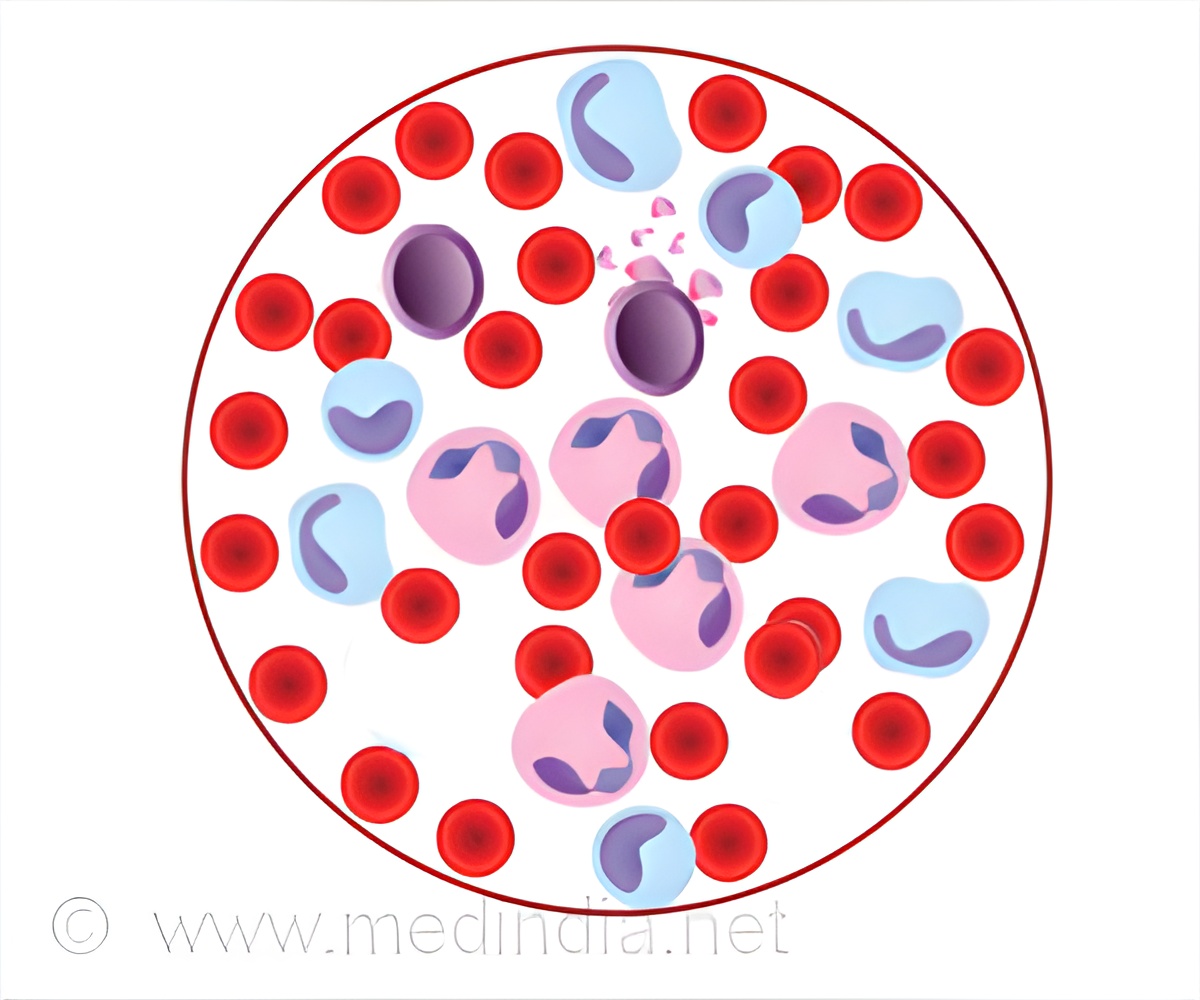MLL1 complex is required for transcriptional activation and for the maintenance of stem and progenitor cells in Acute myeloid leukemia (AML). Targeting the MLL1 complex could be a new approach to treat AML.

‘MLL1 complex inhibition could impair proliferation and cause cancer cell death among AML patients with CEBPA mutations.’
Read More..




According to the results published in Leukemia, the interaction of the mutated protein with an epigenetic regulator, the so-called MLL1 complex, represents a specific vulnerability of AML cells with CEBPA mutations. Read More..
If the MLL1 complex was functionally inhibited, AML cells underwent cell death. Via targeted inhibition of MLL1, the cancer-associated block in normal blood cell maturation could potentially be released in affected AML patients.
Focusing on the malignant isoform of an important factor in blood development
The transcription factor CCAAT/enhancer binding protein alpha C/EBPα, is an important regulator of blood development, as it controls critical steps in the maturation of blood cells. However, in ten to fifteen percent of all AML patients, the CEBPA gene harbors mutations that prevent the formation of the correct protein isoform.
"In AML patients, most mutations occur in the N-terminal part of the CEBPA gene. This leads to the production of a shortened C/EBPα protein, the isoform p30, which is responsible for keeping cells in an immature state and can thus trigger leukemia", explains Luisa Schmidt, the first author of the study, whose work was funded by a fellowship from the Austrian Academy of Sciences (DOC).
Advertisement
Oncogenic protein variant requires functional epigenetic regulator complex
Advertisement
One of these interaction partners is the MLL1 complex, which is required for transcriptional activation and has been shown to be critical for the maintenance of hematopoietic stem and progenitor cells.
"Using a combination of biochemical, genetic and pharmacological approaches, we have now been able to show that the MLL1 histone methyltransferase complex is a critical vulnerability in AML with CEBPA mutations", says Schmidt.
Global studies of protein-DNA interactions showed that the binding pattern of the C/EBPα p30 isoform strongly overlap with that of MLL1. This suggests an interaction and cooperation of these two factors, which was confirmed by additional biochemical experiments.
Targeting of the MLL1 complex function by CRISPR/Cas9-mediated mutagenesis of the MLL1 protein further demonstrated that the growth of AML cells with CEBPA mutations depends on the correct assembly and chromatin anchoring of the MLL1 complex.
In accordance with these results, AML cells with CEBPA mutations were highly sensitive to pharmacological inhibition of the MLL1 complex by specific small-molecule inhibitors. MLL1 complex inhibition impaired proliferation and caused death of AML cells with CEBPA mutations.
Further, treatment of CEBPA-mutated AML cells with MLL1 complex inhibitors reversed the differentiation block of cancer cells and restored normal maturation of blood cells.
Florian Grebien, head of the study at the Ludwig Boltzmann Institute for Cancer Research and at Vetmeduni Vienna, is optimistic, "The result that C/EBPα p30 requires a functional MLL1 complex to control oncogenic gene expression programs reveals a high sensitivity of CEBPA- mutated AML to the inhibition of the MLL1 complex function. These results broaden our understanding of CEBPA-mutated AML and identify the MLL1 complex as a potential therapeutic target for this disease".
Source-Eurekalert










